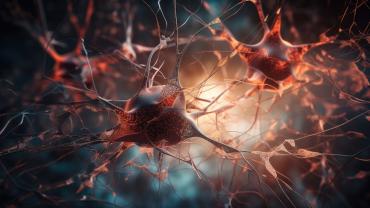
Vitamin B12, also known as cobalamin, is an essential nutrient required for healthy red blood cell formation, DNA synthesis, and the central nervous system's development, myelination, and function. In the U.S., a vitamin B12 deficiency is defined as a serum level below 148 pmol/L (or 200 pg/mL), with levels above this threshold considered ‘normal’. However, this cutoff has been a subject of criticism.
In 2010, the American Society for Nutrition highlighted that more than 5% of patients with clinical symptoms of B12 deficiency who responded to supplementation had blood levels above this threshold. Other clinical studies have shown that B12 supplementation benefits individuals displaying deficiency-related symptoms, regardless of their blood levels. While the link between B12 deficiency and neurological dysfunction is well-established, the exact threshold for adequacy remains undefined in terms of functional impairment and evidence of injury.
A 2025 observational study investigated whether variations in serum B12 levels, even within the normal range, could be associated with neurological dysfunction or injury. The study focused on older adults, who are at higher risk for suboptimal or deficient B12 status.
Study overview: Investigating B12 and neurological health
The study enrolled 231 healthy elderly volunteers (median age 71.2 years) with a median B12 concentration of 414.8 pmol/L. Their blood levels of holo-transcobalamin (holo-TC), methylmalonic acid, and homocysteine were within the normal range. The subjects were recruited through the Brain Aging Network for Cognitive Health (BrANCH) at the University of California, San Francisco (UCSF) Memory and Aging Center.
To assess neurological health, the researchers used visually evoked potential testing, cognitive processing speed testing, MRI scans, and blood biomarkers. These included measurements of B12 transport proteins: the biologically “active” fraction (holo-TC) and the “inactive” fraction (holo-haptocorrin [holo-HC]).
The study revealed critical insights:
These findings suggest that both low and high ends of the measurable ‘normal’ B12 spectrum may be linked to neurological changes in older adults. The authors noted, “Current parameters for defining adequate B12 levels may be inappropriate when considering neurophysiological, neuropsychological, serological, and neuroradiological outcomes.”
While the results are compelling, the study’s relatively small sample size underscores the need for more extensive cohort studies. Future research focusing on the relationship between serum B12 levels, holo-HC, holo-TC, and neurological outcomes could refine our understanding of B12 sufficiency and its impact on neurological health.
The importance of early intervention
Despite being water-soluble, B12 can be stored in the body in large amounts (1 to 5 mg). Yet, once depleted, deficiency symptoms — such as megaloblastic anemia, fatigue, pale skin, infertility, dementia, and neurological symptoms — may develop. Unfortunately, symptoms of B12 deficiency can take several years to appear, reemphasizing the need for early intervention, especially in aging populations.
Low or borderline B12 levels (ranging from 148 to 221 pmol/L or 200 to 300 pg/mL) are far more common than overt deficiency, affecting up to 40% of Western populations. This is especially prevalent in individuals with a low intake of B12-rich foods. A proposed optimal range of serum B12 is 500 to 1,300 pg/mL. However, this is not fully agreed upon. Higher serum B12 levels have been associated with improved cognitive function and reflexes, reduced brain atrophy, and lower rates of confusion, weakness, and depression.
Vitamin B12 deficiency can result from various factors, including:
Moving beyond serum B12: functional biomarkers matter
Since serum B12 alone does not indicate intracellular sufficiency, assessing at least two B12 biomarkers can be recommended to identify subclinical cobalamin deficiency (SCCD):
Conclusion
Emerging evidence suggests that the current definitions of adequate serum B12 levels may not fully capture the requirements for optimal neurological health. Given the association between B12 status and cognitive function, refining guidelines to incorporate functional and structural biomarkers could improve health outcomes, particularly for aging populations.
Read more about the connection between brain health and B12:
B Vitamins and Overall Stress Response
Supporting Mental Health with Healthy Homocysteine
Omega-3 status influences the effect of B vitamins on cognitive decline
By Danielle C. Male, MS, CNS, LDN